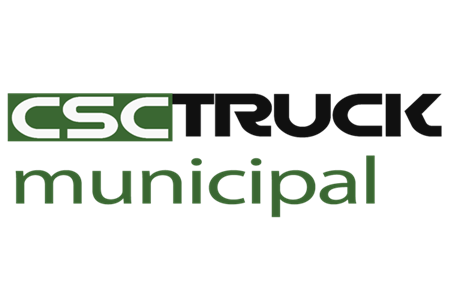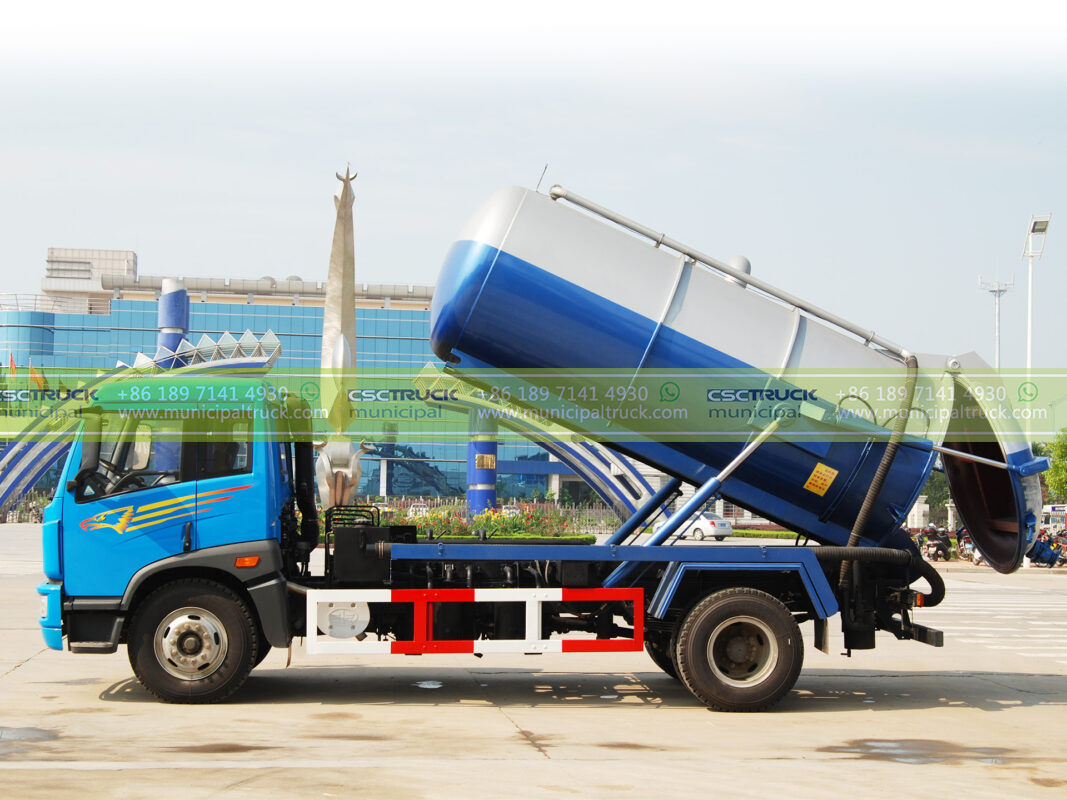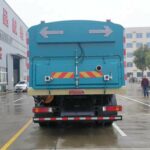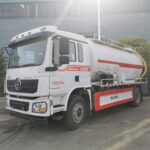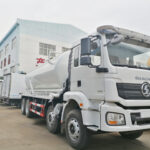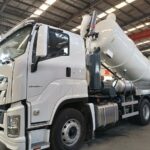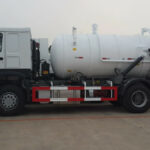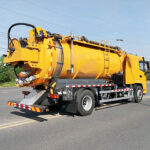Johannesburg Water has initiated a transformative overhaul of its overwhelmed sanitation infrastructure with the commissioning of 38 advanced sewage trucks, delivered through a strategic alliance between global utility vehicle innovator CSCTRUCK Municipaltruck.com and Khanyisa Infrastructure Group (KIG), South Africa’s leading civil engineering consortium. This R320 million investment addresses critical failures in aging sewer networks across informal settlements and high-density urban zones, where chronic blockages, illegal dumping, and hydraulic overflows have compromised public health and environmental safety. The high-capacity vacuum and jetting units form the operational backbone of Johannesburg’s “Clean Rivers 2030” initiative, targeting a 65% reduction in sewer-related pollution incidents within the next 18 months through proactive maintenance and rapid emergency response capabilities.
Engineered Resilience for Johannesburg’s Complex Urban Landscape
Operating across Johannesburg’s fragmented topography—from densely populated hillside townships to century-old downtown conduits—demands sewage trucks capable of navigating steep gradients, narrow access lanes, and highly abrasive waste streams contaminated with industrial debris. CSCTRUCK’s sewage trucks integrate multi-stage filtration, terrain-adaptive drivetrains, and corrosion-resistant fluid systems specifically configured for South Africa’s unique challenges:
High-Torque Vacuum Extraction & Debris Handling
Twin 450-horsepower pumps generate 26-inch mercury vacuum pressure to evacuate viscous sludge, textile waste, and sand-silt mixtures from depths exceeding 8 meters in collapsed lines prevalent across informal settlements; reinforced 20m³ tanks with polymer abrasion linings withstand prolonged exposure to acidic leachates, while integrated shredder systems process solid obstructions like plastics and roots without requiring manual clearance.
Adaptive Terrain Performance & Flood Response
All-wheel-drive configurations with 45-degree approach angles access flooded low-lying areas during seasonal thunderstorms, where submersible pump modules enable continuous operation in 1.2-meter floodwaters; dynamic stability control systems prevent rollovers on unstable slopes common in informal settlements like Alexandra and Diepsloot.
Integrated Jetting & Pipeline Rehabilitation
High-pressure 2,500-psi water jets with variable nozzle arrays clear calcified grease and sediment from century-old brick sewers in the Central Business District, while closed-circuit CCTV inspection reels document pipe conditions to prioritize structural repairs—reducing reactive emergency callouts by preempting catastrophic failures during peak rainfall seasons.
Data-Driven Operational Framework for Metropolitan-Scale Impact
The fleet deployment synchronizes with Johannesburg Water’s digital maintenance platform, creating a proactive intervention system across 7 operational regions with historically high overflow rates:
- Preventive Zone Maintenance: AI-driven risk mapping identifies 1,800 high-priority sewer segments quarterly based on blockage frequency, soil type, and population density, scheduling pre-emptive vacuuming before rainy season surges overwhelm capacity; targeted silt removal in sandy-soil regions like Soweto prevents sediment concrete formation in pipes.
- Rapid Contamination Control: Mobile command units deploy sewage trucks within 22 minutes of overflow alerts, containing E. coli contamination in watercourses like the Jukskei River through vacuum-assisted spill recovery; biohazard kits enable safe waste handling in cholera-risk zones identified by municipal health surveillance.
- Resource Optimization Ecosystem: Centralized dispatch integrates live traffic data, weather radar inputs, and tank-fill telematics to reroute trucks dynamically—reducing transit dead time by 35% compared to legacy systems while ensuring 98% scheduled compliance for critical industrial line servicing.
Integrated Partnership Model Enabling Sustainable Urban Health
The operational success of Johannesburg’s sewage truck deployment underscores the synergistic collaboration between CSCTRUCK Municipaltruck.com and Khanyisa Infrastructure Group. CSCTRUCK delivered not only the custom-engineered vehicles but also virtual reality simulation training for complex vacuum operations in confined spaces, alongside establishing a Johannesburg-based technical support hub with 72-hour parts delivery guarantees. KIG leveraged its township community engagement expertise to recruit and certify 150 local operators, develop multilingual safety protocols for informal settlement operations, and integrate fleet telemetry with the city’s Smart Water Management Platform. This turnkey partnership—combining global engineering excellence with hyperlocal operational intelligence—creates a scalable sanitation ecosystem that interoperates seamlessly with KIG’s existing rear loader garbage truck fleets servicing formal residential zones and hook loader truck units managing containerized waste transfer stations. Together, these integrated systems form a resilient public health barrier for Johannesburg’s 6 million residents, directly advancing the city’s commitment to SDG 6 (Clean Water and Sanitation) while mitigating pollution-related healthcare costs estimated at R1.2 billion annually.
